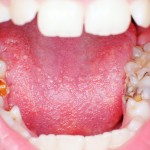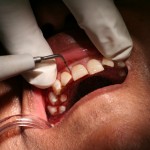
This review of the association between higher dental caries experience and lower serum vitamin D levels in children included 13 studie. The findings suggest higher levels of caries in patients with lower vitamin D levels.
[read the full story...]
This review of the association between higher dental caries experience and lower serum vitamin D levels in children included 13 studie. The findings suggest higher levels of caries in patients with lower vitamin D levels.
[read the full story...]
This review of the the potential impact of prenatal Vitamin D levels on enamel defects and tooth erosion included 7 studies. While the findings suggest an association between Vitamin D and emamel defects the studies varied in relation to the study designs, Vitamin D assessment methods, enamel defect assessment, and demographic characteristics of the populations studied so the findings should be interpreted very cautiously.
[read the full story...]
This review compared vitamin D levels in individuals with or without periodontitis, and the effects of scaling and root planing (SRP) +vitamin D on periodontal clinical parameters in patients with periodontitis. The findings suggest a possible benefit but the quality of evidence means the findings should be interpreted very cautiously.
[read the full story...]
This review of adjunctive therapies during supportive periodontal care (SPC) in patients with residual/relapsing pockets included 12 studies that currently provide insufficient/poor evidence to determine the efficacy of adjunctive strategies to improve SPC.
[read the full story...]
This review of a possible association between vitamin D deficiency and recurrent aphthous stomatitis (RAS) included 5 case control studies providing limited evidence that low levels of serum vitamin D might be a risk factor for RAS.
[read the full story...]
Joff Jones summarises a recent systematic review, which looks at the evidence for a wide range of non-pharmacological treatments for ADHD. The review finds the strongest evidence for diet, child/parent training and behavioural interventions.
[read the full story...]
This review of the association of Vitamin D and periodontal disease identified 27 mainly observational studies providing little data to support or refute the association
[read the full story...]
Data from a cohort of children (6-11 years old) participating in the Canadian Health Measures Survey (CHMS) suggests an association between vitamin D status and dental caries. Children with 25(OH)D concentrations ≥75 nmol/L had a 39% lower odds of having experienced caries.
[read the full story...]
To date there has been little research on vitamin D deficiency in people with learning disabilities. In this debut blog by Brant Cebulla, we look at a new case control study which sets out to answer some key questions and consider areas for further research.
[read the full story...]
Get ready to amend your dopamine hypothesis and stop trying to wrap your neurons around the role of glutamate in the brain. The rising star of the neurobiological schizophrenia literature is…. Vitamin D. Yes, really. The more sceptical amongst you (including me) may feel that finding a vitamin deficiency in psychosis patients is perhaps not [read the full story…]